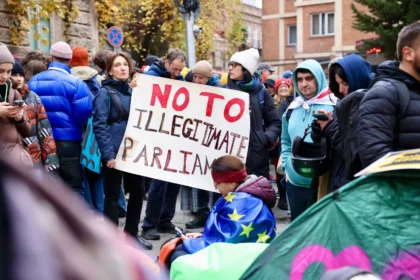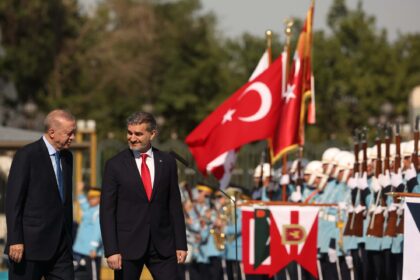**Poland Considers Revoking Visa-Free Travel for Some Countries, Citing National Security Concerns**
The Polish government is reviewing whether to reintroduce visa requirements for citizens of Georgia, Armenia, Venezuela, and Colombia. This decision comes after a recent arson attack in Warsaw and the central city of Radom was attributed to a Russian-backed operation.
According to reports, a 27-year-old Colombian national was arrested in May last year for carrying out arson attacks on behalf of Russian intelligence services. The suspect’s arrest has led Polish Prime Minister Donald Tusk to express concerns about the threat posed by citizens from countries with historical ties to Russia.
**A Threat From the Former Soviet Union**
Tusk stated that while this is an isolated incident, citizens from the former Soviet Union are more susceptible to recruitment by Russian intelligence services. This concern may be fueled by Poland’s location in Eastern Europe and its history of being a target for Russian influence.
**Domestic Crime in Georgia a Key Concern**
When asked about the potential suspension of visa-free travel for Georgian nationals, Tusk highlighted domestic crime as a key issue. He emphasized that several deportation operations have already taken place, warning that anyone who commits a crime will face either imprisonment or deportation.
In 2024, Poland deported over 2,500 Georgian nationals, mostly for using forged documents, and over 1,500 others were allegedly involved in criminal offenses. This move may be seen as an attempt to address the issue of domestic crime, but it also raises concerns about the impact on diplomatic relations between Poland and Georgia.
**EU Visa-Free Travel Reforms**
The discussion comes at a sensitive time for Tbilisi, as Georgia faces losing its visa-free travel privileges with the European Union. The EU has presented Georgia with eight recommendations to repeal controversial laws and safeguard human rights. If these conditions are not met, the EU may suspend visa-free travel.
Meanwhile, the EU is preparing reforms to its visa-free suspension mechanism, making it easier to trigger temporary bans in cases involving serious human rights violations or breaches of international law. This development may have implications for countries like Georgia that rely on visa-free travel to facilitate tourism and economic cooperation with the EU.
**Context and Analysis**
The Polish government’s decision to review visa requirements is a response to perceived national security threats from countries with historical ties to Russia. While this move may be seen as necessary, it also raises concerns about the impact on diplomatic relations between Poland and other countries.
As the EU prepares reforms to its visa-free suspension mechanism, the issue of visa requirements becomes more complex. The potential for temporary bans may create tension among member states and countries relying on visa-free travel.
**Background and Context**
The discussion around visa-free travel comes at a time when Georgia faces significant challenges in maintaining its privileges with the European Union. The country must balance its desire to maintain close ties with Europe with concerns about domestic crime, national security, and human rights.
In this context, Poland’s decision to review visa requirements for Georgian nationals may be seen as part of a broader effort to address perceived threats to national security. However, it also highlights the complexities of diplomatic relations between countries in the region.
Read More @ civil.ge












